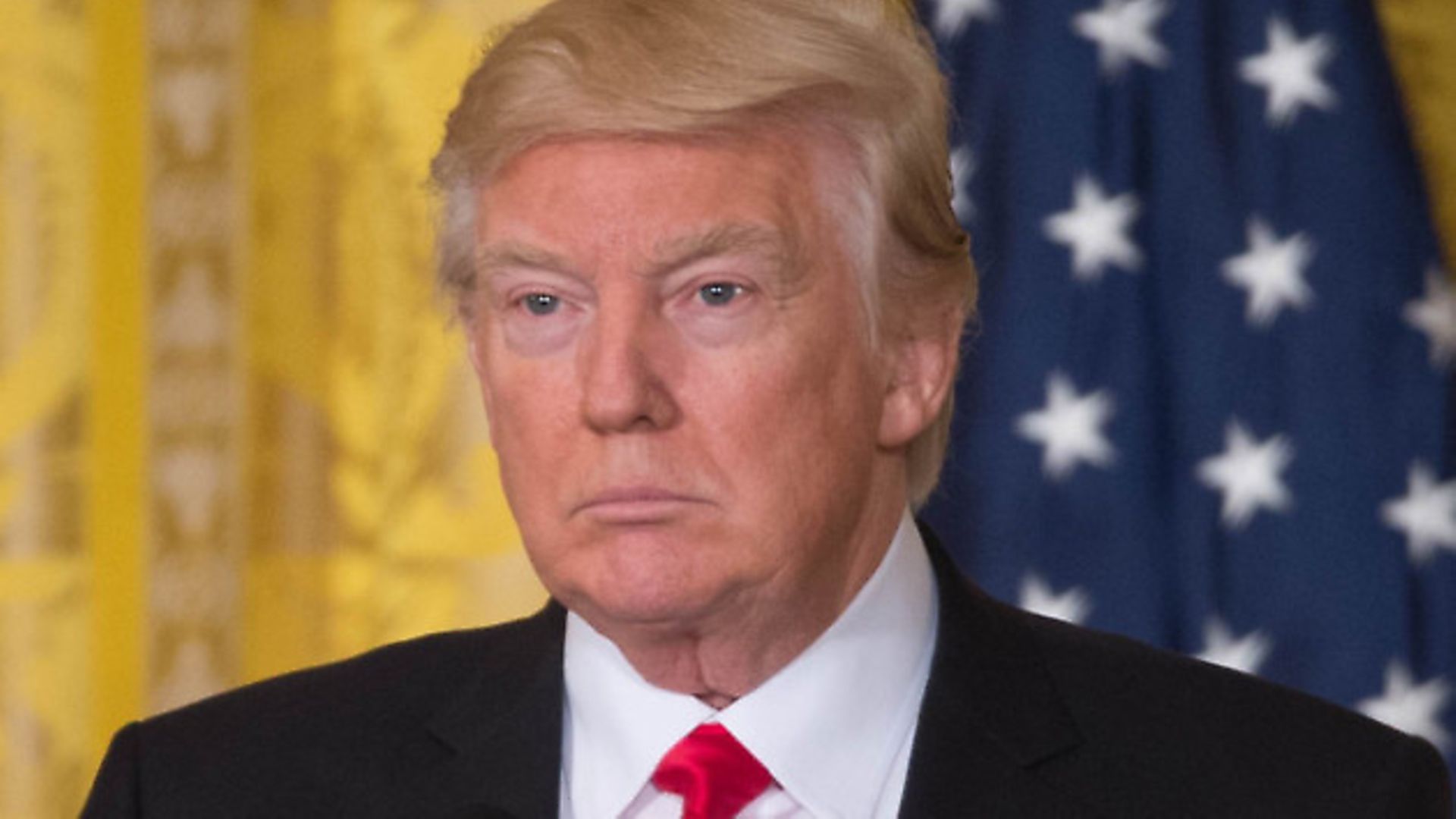
Behind enemy lines: Trump’s US becomes hostile territory for the media
It was high summer on the edge of Siberia and suddenly there came the hardest question of a tough assignment. I had travelled to Yekaterinburg for a story about the spread of HIV. The city’s location made it a crossroads for the trade in many goods, including heroin. As a result, HIV infection rates were rising frighteningly rapidly among drug users. The trip involved encounters with sources, many of whom were distressed – some of whom who were frankly scary. But it was questions from the journalism students who were with us that really stumped me.
The questions – including the size of my salary – were largely predictable. One was not: ‘What do you do when the governor does not like a story you have written?’
The obvious answer from a Western reporter might have been something about the noble notion of the fourth estate speaking the truth to power. But I knew that such an answer would not work in the lawless Russia of the post-Soviet era. Journalists – especially those who uncovered incompetence or corruption among the powerful – could find themselves in serious, even mortal, danger. So I offered a reply which blended the ideal with a more realistic point about it being important, as a reporter, to manage one’s relationships.
I was recently reminded of that day. Reuters editor-in-chief Steve Adler sent out a message to staff in which he outlined the challenges of working in countries where the ‘media is unwelcome and frequently under attack’. The message listed ‘places such as Turkey, the Philippines, Egypt, Iraq, Yemen, Thailand, China, Zimbabwe, and Russia, nations in which we sometimes encounter some combination of censorship, legal prosecution, visa denials, and even physical threats’.
His point was that experiences such as these would now prove useful in covering the United States under the presidency of Donald Trump. The administration is still in its first month, but this is hardly the kind of company in which the US would wish to find itself.
My own experience covering international news included being stopped from filming on many occasions in Russia: including even once during a British ministerial visit. The location was a rusting naval dockyard which the minister was visiting to see how funds allocated to make safe ageing nuclear reactors were being spent – and a man in a shiny suit demanded to see what the cameraman I was working with had shot.
On another occasion, a reporting trip to some glasshouses ended in a police station. The Federal Security Service, or FSB, detained my colleagues and me for filming flowers. The year-round rose-growing business was close enough (some 20km, as far as I remember) to a naval base to be off limits to foreigners.
Many international journalists could add plenty of anecdotes to that list: being stopped at roadblocks by heavily armed men in plain clothes; having their phones tapped or their equipment confiscated or damaged; being issued with threats – this especially applies to local people helping journalists from beyond its borders. The difference now is that Reuters journalists are being asked to draw on such experiences in a country which sees itself as leading ‘the free world’.
Western coverage of the world is not perfect. It frequently provides fuel for its critics, journalists among them. Yet at a time when journalism is under all kinds of political and economic pressures, this is actually a chance for it to shine; to prove its worth.
Repressive governments often criticise the kind of ‘objective’ journalism prized as a model in the Western world. They argue it is not, in fact, objective. State media in countries where dissent is discouraged howl that international news organisations are merely acting at the bidding of other ‘political demands’.
As a correspondent, I have covered armed conflict, political upheaval and refugee crises – but most of that was outside Western Europe. Now political uncertainty is shaking the Western world and with it come attacks on the media, may of them from the latest occupant of the White House. As Adler’s message to his staff noted: ‘It’s not every day that a US president calls journalists ‘among the most dishonest human beings on earth’ or that his chief strategist dubs the media ‘the opposition party’.’
It is good to see organisations such as Reuters publicly reporting the situation for what it is. Historically, one of the influences which shaped ideas of objective journalism was economic. In capitalist economies, news had to sell – so offering a version of events which could be widely accepted made business sense. In a political and media world increasingly shaped by emotion and belief, this is arguably less important.
Reuters’ statement is valuable in another sense. For journalism is also about recognising era-defining change when it comes. Allies can become adversaries; good governments can give way to bad ones. Confrontation between political power and the press can become repression. When it does, or threatens to, that’s news wherever it happens. Journalists need to report it.
James Rodgers is a senior lecturer in journalism at City, University of London. He spent twenty years as a journalist: five for Reuters Television, and 15 for the BBC, much of which was spent as a foreign correspondent
This article first appeared at www.theconversation.com
Warning: Illegal string offset 'link_id' in /mnt/storage/stage/www/wp-includes/bookmark.php on line 357
Notice: Trying to get property 'link_id' of non-object in /mnt/storage/stage/www/wp-includes/bookmark.php on line 37






